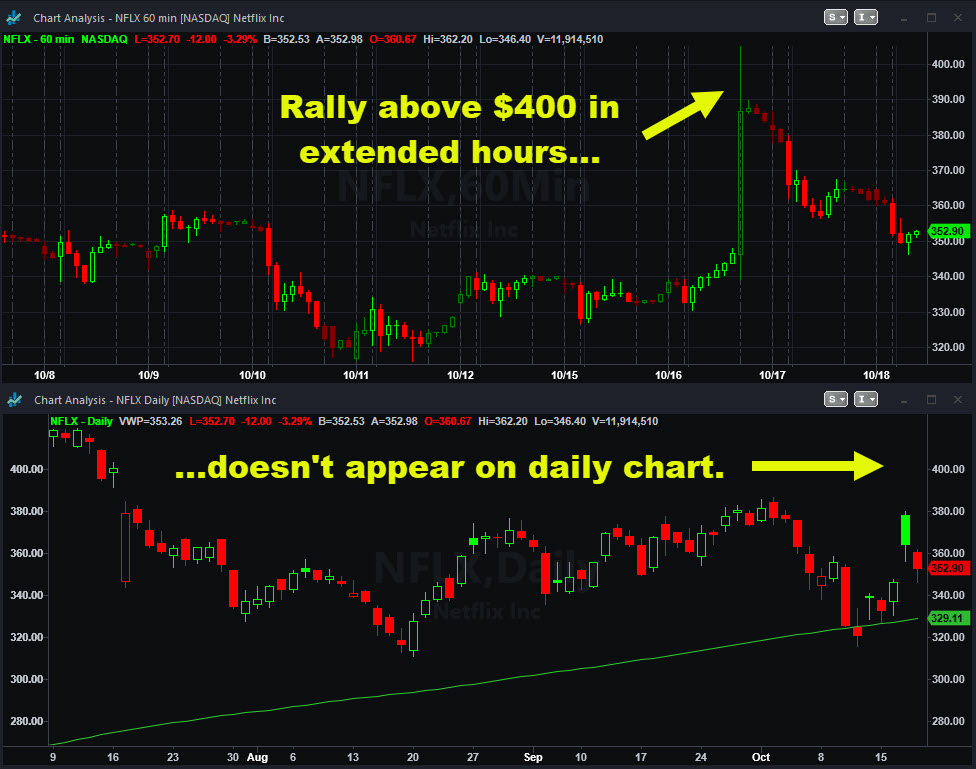Third-quarter earnings season is off to a mixed start, with high-profile names doing little but industrials getting hammered.
The most actively traded companies — Netflix (NFLX), Bank of America (BAC) and JPMorgan Chase (JPM) — beat estimates but have moved little. None of their numbers seemed to be ground-breaking.
Take NFLX. Bulls initially gushed over its strong subscriber growth, but its shares failed to hold most of their gains in regular trading. Most analysts praised the numbers, but clients with a more critical view may notice how foreign viewers drove the expansion. That’s not terrific when the U.S. dollar is strong. Content costs are also squeezing margins.

The banks also had blemishes despite consensus-beating profit. BAC’s loan growth seemed tepid, and weak bond trading weighed on JPM. Still, the yield curve may ultimately prove a bigger catalyst for financials than quarterly results.
Other technology stocks were mixed. International Business Machines (IBM) crumbled to a new 2-1/2 year low after newer businesses failed to lift revenue as much as hoped. Is the turnaround story real, or is this firm a hapless dinosaur?
Semiconductors also slid on a combination of good and bad news. Chip-equipment firm Lam Research (LRCX), for instance, beat estimates across the board but was quickly sold. Ditto for foreign heavyweights like ASML (ASML) and Taiwan Semiconductor (TSM).
Health care was a brighter area as blue chips Johnson & Johnson (JNJ) and UnitedHealth (UNH) surprised to the upside. This sector emerged as a big winner last earnings season and has been the market’s top performer since the summer.
Industrials have been less than inspiring. The biggest firms to report so far, transports like CSX (CSX) and United Continental (UAL), have failed to break out after beating expectations and issuing strong outlooks.
A broader set of industrial companies dropped sharply on bad news. Textron (TXT) missed across the board and guided lower. Aircraft and snowmobiles were the culprits.
Tariffs were a problem for component supplier Grainger (GWW), squeezed by higher costs on imports from China. Engineering company Fluor (FLR) issued a surprise revenue warning and tool company Snap-On (SNA) continued its string of weak results. United Rentals (URI), a general equipment provider, also cratered despite seeming to beat estimates.
One last company is worth mentioning: former blue-chip Philip Morris (MO) ripped to its highest level since April after management raised cigarette prices and predicted strong growth for its IQOS vaping devices.
In conclusion, earnings season is off to a mixed start. Good news has been met with limited enthusiasm, while bad news has triggered declines.





















